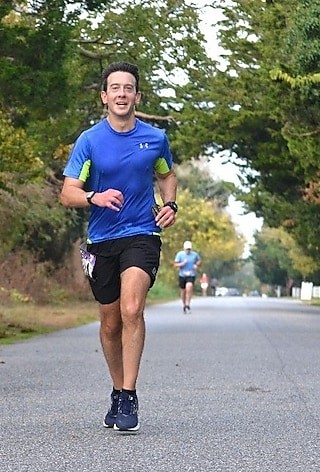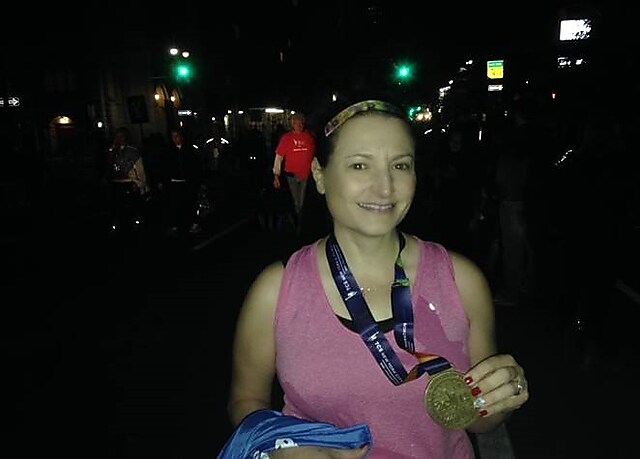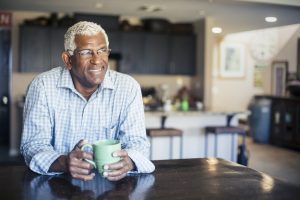Determined to adapt her plans rather than abandon them, O’Brien-Russell became a committed walker. More than a decade after her diagnosis, she has completed two New York City Marathons, posting a 6:05 finish time in the 2015 event, and has participated in more than 100 other run/walk races of various lengths, averaging a one-event-per-month pace before COVID-19 upended last year’s racing schedule.
Covering a mile in anywhere from 11 to 13 minutes, the nurse reports that many jogger friends who decide to accompany her on a walk find they have to hurry to keep up. Beyond miles logged, paces recorded, and events completed, however, the numbers that matter most to O’Brien-Russell involve the money she has been able to raise for worthy causes. An annual event that she and others organized to honor a colleague who died several years ago generates roughly $40,000 in contributions dispersed to various charities. She also has participated in walk/run events that benefited animal welfare organizations, groups that serve the homeless and hungry, and prostate cancer research initiatives.
Many years and many races after learning that she had a significant cardiovascular condition, O’Brien-Russell said, “I don’t think anybody should say, ‘I can’t do a race.’ It doesn’t matter whether you do a mile in six minutes, 12 minutes or longer. That’s still a mile in which you’ve lapped everyone who is at home sitting on the couch. And you still get the same ‘runner’s high’ whether you’re running fast, jogging or walking.” She adds that research shows that brisk walking can provide roughly 90% of the health benefits of running — and at considerably lower risk for the acute and chronic musculoskeletal problems that can plague runners.
O’Brien-Russell brings the same sense of enthusiasm and encouragement to her practice of oncology nursing. “I love oncology. You never have the same day twice, but you get to see the same patients over time and build relationships with them. In fact, you don’t just see and get to know the patients — you get to know their families and friends, as well, and you get to teach, which I love.”
Perhaps one of the most important lessons she teaches, by example, is that a surprising and frightening diagnosis is not cause to give up; rather, it’s a reason to adjust in order to keep moving down the road in a new way.
*******
Dr. Bernstein and O’Brien-Russell are among the more than 100 oncology physicians and nurse clinicians practicing with RCCA in the oncology network’s 20+ care centers throughout New Jersey, Connecticut, Pennsylvania, Maryland and the Washington, DC, area.
The physicians, nurses and other health care professionals of RCCA provide care to roughly 22,000 new cancer patients and 225,000 established patients each year, offering those patients immunotherapy, targeted treatment, cell-based therapy and other cutting-edge treatments and diagnostic modalities, as well as access to clinical trials. Their provision of cancer care has continued unabated throughout the COVID-19 pandemic.











